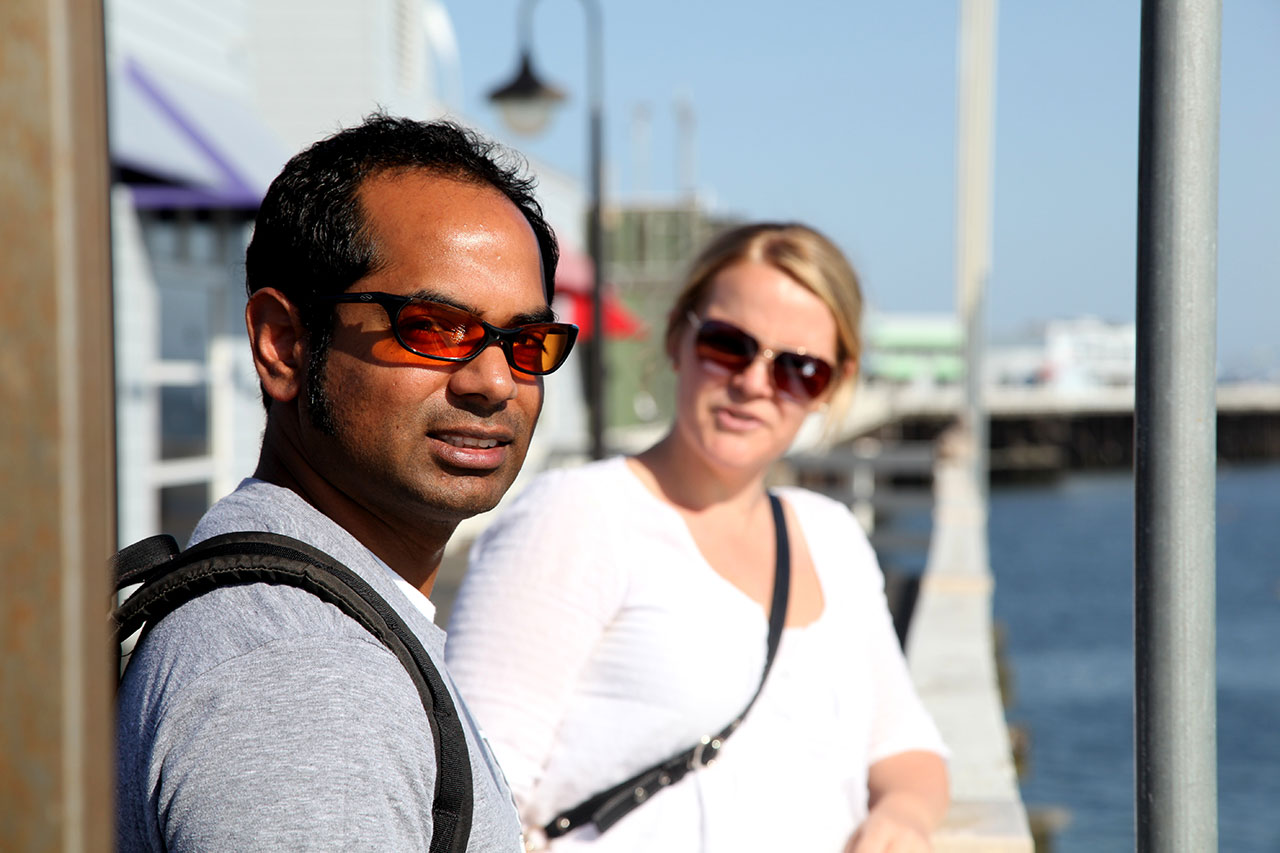There were many days and even weeks where I was convinced all this was a huge mistake. Ben Horrowitz, a well known venture capitalist, blogged on this topic in 2012 in blog post also called The Struggle .
It’s complicated
Us humans are neither binary or entirely logical; thank goodness. We’re complex creatures and what constitutes happiness, contentment, joy or any of the opposite emotions depend on a large number of factors. This makes The Struggle even more acute.
It started for me near the end of 2011 when we were failing to raise funding. I knew we absolutely needed to secure funding to succeed. I won’t go into the details of our fundraising journey in this article but you can read about it here.
Being a team
The pros of having a co-founder undoubtably outweigh the cons. But I’d be lying if I didn’t admit that having a co-founder increased the pressure I put on myself. If we couldn’t figure out how to make Trovebox successful then I’d feel some guilt along with it.


Understanding my motivations
There was a clear consequence of not getting investment; we’d have to abandon and shut down OpenPhoto. Founders start companies for various reasons but there’s always a common thread of believing strongly in something. It might be a belief that building something will improve people’s lives, make you a lot of money or change something that’s in need of change. Most often it’s a combination of these that drive founders.
I believed OpenPhoto needed to exist. I’m a bit of a nostalgic. I love to relive past moments. Furthermore it became really important to me that we preserve the memories of our family’s everyday life. One day I hope to sit with my kids and show them photos of their childhood; much like my own parents did with me.
I believed something needed to be changed. Looking around at how everyone dealt with, or didn’t deal with, archiving photos I knew something had to change.
I believed we could build a successful busines. I’ve always been driven to create businesses. In middle school I would buy Zotz candy for $.03 and sell it for $.05. A hefty 66% margin.
As with any strong belief it’s difficult to come to terms with the idea that things won’t pan out the way you believed.
But there’s a tougher reality that had dawned on me.
Does shutting down mean failure? How would I explain this to friends and family who thought I was making a mistake when I left Yahoo? Do I just go back and get a normal job?
Hello ego, pride and insecurity. Not traits I’m particularly proud of but they helped motivate me to continue building OpenPhoto. I imagine ego drives more entrepreneurs than you’d think.
The effect of having no money
Louis C.K., a comedian, has a great bit titled Being Broke . Besides being hilarious I felt like I could relate1.
You ever have negative money? You look at your bank account and you have negative $10. […] I wish I didn’t have anything but I have less than that. If it’s free I can’t f*****g afford it.
It turns out that the lack of money can act as a crucial forcing function. When you’re facing the reality of shutting down a startup because you can’t pay your bills you’ll quickly focus on what matters most. Even in hindsight I know we didn’t waste much time focusing on the wrong things. I have our dwindling bank account to thank for this.
Growth is everything
There was one thing that rang true on each day of Trovebox: growth. Growth shares many characteristics with fundraising. Namely growth is largely out of your control and all you can do is try and make the stars align.
The feeling of not acheiving growth was as stressful as when we couldn’t finding funding. It was a sign that the product was headed in the wrong direction and it felt like we were trying to turn the Titanic around.
I spent the beginning of 2014 going through a spreadsheet of 600 potential customers we could sell to. I called them up on the phone and in the unlikely event there was interest it started a series of calls to close a sale. None of them panned out.
Perhaps our product wasn’t solving a need as critical as our earlier conversations with customers implied. Maybe it was that we grossly underestimated the length of the sales cycle.
I don’t believe we’ll ever know.
Dashed hopes
Then you have the golden opportunities. Ones which have all the signs and promise of being a home run. We had promising meetings with execs from Sony, Netgear, Roku and Western Digital. We even met with Sony 4 times in San Diego. Nothing.

These were particularly difficult because when we crashed we crashed hard. Forging partnerships with companies is difficult because you have little insight into their roadmap. A company maybe highly interested but then go silent for 6 months and come back to restart the conversation. You can only do your best and stay on their radar.
Everyday will bring a struggle
Those are some of the larger struggles I remember. But every day brings struggles. A lot of it is psychological and emotional. Keeping on top of that without losing your sanity isn’t easy.
That’s why it’s so critical to have a good support system. Else you’ll got nuts and take your company down with you.
1 Just a disclaimer that I’m not implying I was poor. When I think of people being poor it’s not just a lack of money but a lack of opportunity. I empathize greatly with people who find themselves in that situation. I never considered myself poor despite not having money.
